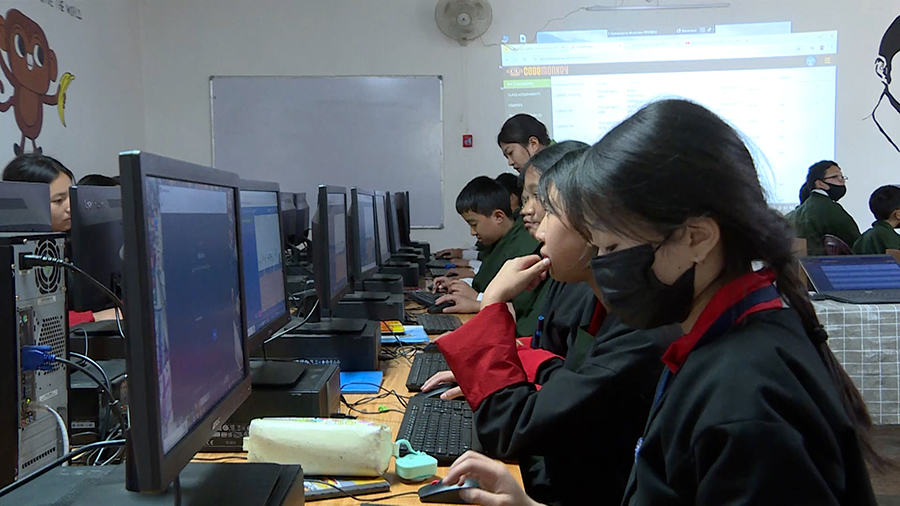 Ten schools in ten districts across Bhutan will get full internet coverage by next year under the European Union’s (EU) digitalisation project. This project focuses on three key areas: improving internet access, training teachers, and content development. Supported by EU funding of one million Euros, which is over Nu 96 M—the project began last year and aims to improve digital learning in these pilot schools.
Ten schools in ten districts across Bhutan will get full internet coverage by next year under the European Union’s (EU) digitalisation project. This project focuses on three key areas: improving internet access, training teachers, and content development. Supported by EU funding of one million Euros, which is over Nu 96 M—the project began last year and aims to improve digital learning in these pilot schools.
 Digital learning is not new in Bhutan, but this project takes it a step further. The pilot schools will not only get better internet but also clear digital standards and trained teachers.
Digital learning is not new in Bhutan, but this project takes it a step further. The pilot schools will not only get better internet but also clear digital standards and trained teachers.
Franck Viault, Minister Counsellor/Head of Cooperation of EU Delegation to India and Bhutan said “So, connectivity is to meet the infrastructure needs. Then in terms of content, the idea is that there is some work on the curriculum for children to easily access and to more easily learn from the online teaching. Then there is also capacity, where the teachers and educationists are skilled and empowered to deliver teaching using this technology. And the idea is to develop that everywhere in the country.’’
Changangkha Middle Secondary School in Thimphu is one of the pilot schools. It has 165 students with disabilities—25 of whom are non-verbal. The principal said the school will benefit from new assistive technology for these students.
Nyendo, Principal of Changangkha MSS said ‘‘If you look across the universe, ICT has become so important in teaching and learning. I feel that the digitisation of these schools would help enhance teaching and learning programmes. And if you talk about Changangkha school, it is also one of the inclusive schools. We need assistive devices for these children to communicate. So this digitalisation would also help to get some resources so that the children who are non-verbal can also learn well through assistive devices.’’
As part of the project, Bhutan is also developing its first Education Technology Framework. This sets standards for digital content and supports the national ICT education plan, iSherig 3.
Franck Viault, the Minister Counsellor/Head of Cooperation said “So this EU-UNICEF-supported initiative will be the strong foundation we believe for the Education Technology Framework policy of the country. Enhancing digital literacy among teachers, students, and early childhood care and development is also not forgotten. And this is also to improve the quality of the digital content. The second priority is how to translate the education curriculum into digital content and ensure safe and effective use of technology in education.”
He added that the EU plans to give more financial help to strengthen the initiative.
The project is being carried out by UNICEF and Bhutan’s Ministry of Education and Skills Development. Over three years, it will support 6,000 students and 400 teachers.
Sonam Yuden
Edited by Kipchu










